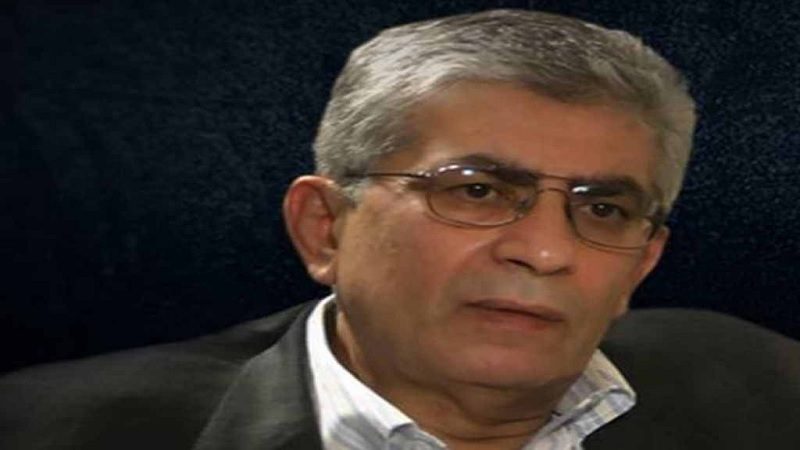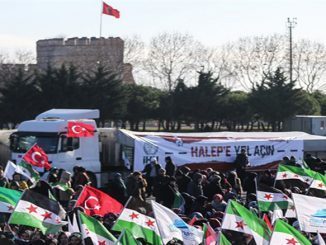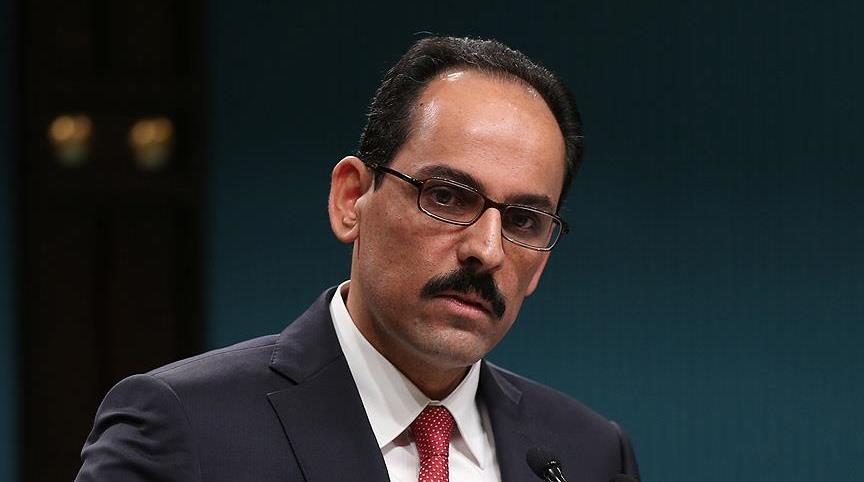
By: Dr. Basheer Mousa Nafi*
Shortly before eleven pm on July 15, Turkey witnessed the beginning of land and air military movements, which later turned out to be a coup attempt. Given the number of generals and colonels who were arrested on charges of participating in the coup attempt, and their spread in all branches of the military and the various military regions of the country, it seems as if this coup was not destined to fail.
Some commanders of armies, some leaders of commando brigades, at least one marine commander, the chief of staff of the Aegean army, brigades of ground forces and gendarmerie, two air bases, a number of the General Staff officers, some troops from the First Army, and forces from the east, west and south of the country were accused of taking part in the coup. The putschists dominated the joints of Istanbul, including the city’s airport, which is the largest of the nation’s airports, the headquarters of the municipality, the joints of the main streets, the central headquarters of the state-run Turkish Radio and Television (TRT), and the headquarters of the General Staff and the gendarmerie troops’ command. They managed to arrest the chief of staff, all the non-supporters of the commanding officers, the commander of the gendarmerie forces, and the leaders of the naval and air forces. They attacked the parliament and the headquarters of the Intelligence service and the Interior Ministry fiercely.
The putschists enjoyed the support of advanced elements in the judicial institution; they had prepared lists of hundreds of figures whom they expected would be involved with them if they succeeded in taking over the reins of government and state.
In the early hours of the coup, the Western media and most of the Arab TV stations, as well as those speaking on behalf of Iran and the Shiite political forces adopted pro-coup stances and talked about the success of the putschists.
The US President and his secretary of state did not come out with statements in favor of the democratic legitimacy except after the signs of the coup failure had emerged. That is, the putschists were not only a concrete power that was spreading widely in the military body, but they also enjoyed a regional and international support and backing as well, whether implicitly or explicitly.
But the attempt failed, and there were signs of its failure only three hours after its start.
The attempt failed primarily due to the courage of the President and the courage of the people. When the coupists began their move, President Erdogan was spending a vacation in the south west of the country. Once he realized the truth of what was happening, he did not try to disappear or search for a safe haven, but he called on the people to come out to confront the putschists. Under extreme danger, he moved his plane to Istanbul, which was the main theater of the coup movement. People did not disappoint the President; hundreds of thousands of people of all groups and political orientations gathered to protect the President when his plane landed in Istanbul airport. They also besieged the sites of the coup forces and began to evacuate the Turkish cities of them.
Istanbul was the arena of the first confrontation between the people and the putschits. In multiple Anatolian cities, the Turks put their cars in front of the gates of army camps to prevent possible movement of any coup forces. The people took to the streets with all their social forces to confront the putschists, but the biggest burden of confrontation was borne by the Turkish middle class, with all its cultural and political orientations. In 1960, the coupists dominated relatively smoothly; in 1980, they needed to shed much blood before they tightened their grip. In 2016, the people defeated the coup, because the largest bloc of people were aware of the risks that the country would face if the military minority dominated the reins of power.
The attempt failed because the putschists, despite their concrete power and wide-range spread, did not enjoy the support of senior military leaders, and thus moved without the cover of the magic legitimacy of the modern army, known as the series of order and command. The putschists succeeded in kidnapping the chief of staff and the commander of the ground forces, but they did not get the support of either of them. They did not get the support of the leaders of the gendarmerie, the air and naval forces, either. Turkey dramatically changed during the past decade and a half. Also, the culture and vision of large segments of the military leadership changed. Although the ancient culture did not disappear, the total mind of the army has become more aware of what can be accepted by the people and what they can fight without it.
The attempt failed because a number of state officials showed a rare courage at the critical moment when the country was in dire need of a stance from them. The first of these was Prime Minister Benali Yildirim, whose appointment to succeed Ahmet Davutoglu in May raised a lot of confusion. In less than an hour after the coup move, Yildirim went out to the people with a statement, defying the coup, and saying that what was happening was an illegal rebellion, that the elected government was continuing on its job, and that it would fight the rebels. Also, Minister of Interior Afghan Alaa proved that, since taking office three years ago, he has not only succeeded in cleansing the police and the security apparatus of the Gulen terrorist group, but he has also established a culture of respect for the law and the Constitution within the organs of the interior ministry and its departments. Alaa ordered the police forces and other security agencies to tackle the putschists and arrest them, and to carry out their duty to protect state institutions and the masses of the people. The rapid response of the majority of police and security officers to the orders of the minister contributed significantly to changing the balance of power against the putschists.
The third of these was the commander of the First Army, the largest Turkish army corps, whose command center is in the Selimiye military camp in Istanbul. Gen. Umit Dundar quickly realized that the coup succeeded in detaining the chief of staff and controlling the armed forces’ General Staff headquarters, but this did not affect him. He was the first high-ranking officer who declared his opposition to the coup and affirmed that the putschists did not represent the military institution, announcing that they were only a rebel group. The Prime Minister then declared Dundar as an acting chief of staff after the absence of the chief of staff represented an obstacle in rebuilding the order and the chain of command in the army.
Also, the role of the intelligence chief, Hakan Fidan, was not at all less than the role of others, if not more in what he did of early warning of the coup attempt to leading the members of his agency in a solid resistance to the putschists’ barbaric attack on the headquarters of the intelligence service. Also, during the next stage, Fidan played a key role in chasing the leaders of the coup, and joining security units in arresting them.
In addition to all these, there was an important role that was played by the commander of the Interior Ministry’s special forces Gen. Zaccai Oksakaala, not only in announcing his opposition to the coup attempt, but also in resisting the coupists and expelling them from a number of important sites. In the first hours of uncertainty about the loyalty, the Special Forces was the first balancing power that stood in the face of the coup.
Finally, but not least, the coup attempt failed because the putschists did not find a single political party to accept or support what they have done. This is not 1960, when the head of the People’s Party and former President of the Republic, the veteran, Ismet Inonu phoned Jamal Gursel, the coup leader, saying to him, “We are waiting for your orders O Pasha”. It is not also 1980, when all of the traditional parties showed a tacit acceptance of the coup.
After sixty years of struggle for democracy, the Turkish political class learned the lesson. From the moment when the leaders of the opposition parties realized that the government has decided to fight the putschists, one after another of them announced his opposition to the coup attempt and his support for the stance of the government and the president.
Due to all this, the putschists failed in one of the most serious attempts to undermine the freedoms and democracy in the East as a whole. There is no doubt that what Turkey experienced in that long night tempts (some observers) to compare it with what Egypt experienced in the first three days of July 2013. There is a variation in the conditions and contexts, of course, but, if the political class, including intellectuals, party members and public figures that paved the way for the coup against the fledgling democracy in Egypt, wanted a big mirror to see their shame as it is, they should definitely look at what happened in Turkey during the night of July 15, 2016.
* Basheer Nafi is a writer, a historian, and a researcher in modern history, especially the Middle East and the Islamic History.
(Published in Al-Quds Al-Arabi, on Thursday, July 21, 2016, and translated for MEO)



